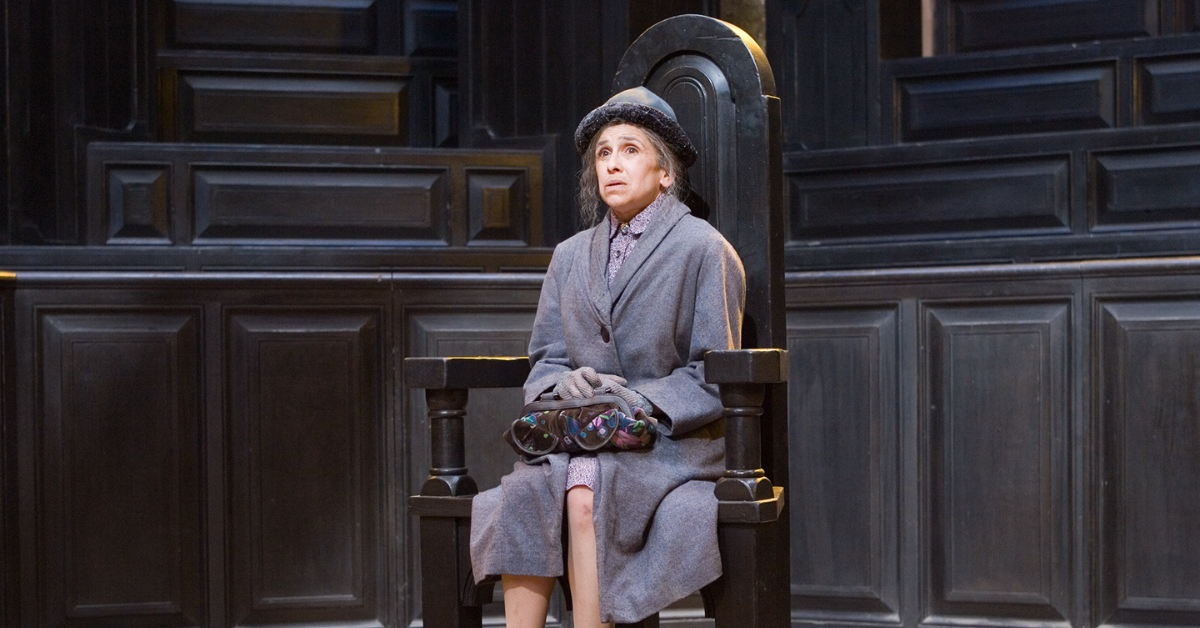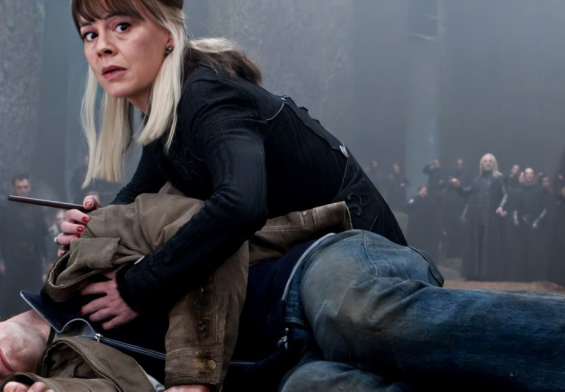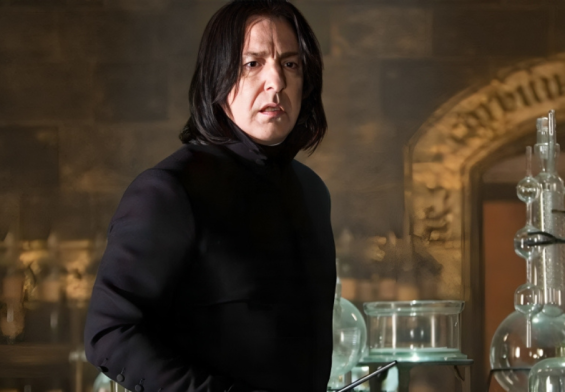
Hey everyone, welcome to another installment of Harry Potter Theory. Today we’ll be discussing exactly how the genetics of witches and wizards work, with a focus on where the heck squibs come from.
If you’re a fan of Harry Potter and the works of fantasy fiction in general, you’ve likely asked yourself the question, where does magic come from?
Recommended for You:- The Real Reason Voldemort Didn’t Use RANDOM Tiny Things for Horcruxes!
- 10 Shocking Crimes That Land Wizards in Azkaban!
- You Won’t Believe the Shocking Truth About Harry’s Scar!
- The Shocking Truth: Is the Sorting Hat a Horcrux?
The Nature of Magic in the Wizarding World
In some universes, it would seem that magic can be acquired or learned, but in others, like the wizarding world of Harry Potter, magic is explained as more of a natural talent or gift that a person is born with.
But how exactly does that magic get passed down from generation to generation? Why is it that some muggles end up with magical abilities while other children born into wizarding families are unable to perform even the simplest of spells?
The Origins of Magic
I think in order to answer these questions, we must first establish where magic itself comes from in Harry Potter. The prevailing theory, which has been bolstered by various interviews with J.K. Rowling, is that magical abilities in the world of Harry Potter are genetic.
This means that a witch or wizard is born with a gene that allows them to perform magic. It’s in their very DNA, for if it was not, wouldn’t muggles be able to learn it? By contrast, squibs and muggles are lacking that same gene and are unable to do magic.
Biological Categories of Magic Users
This leaves us with a few different biological categories, at least in my mind.
Pure-blood Wizards
There are pure-blood witches and wizards whose ancestors have all been magical. Presumably, they have the magic gene from both their mother’s side and their father’s.
Half-blood Wizards
Then there are half-bloods, who have one magical parent and one muggle parent. Half-blood witches and wizards would, in theory, have the magic gene from just their mother or their father, but not both.
Muggles
Muggles have two parents, neither of whom are magical. These individuals do not have the magic gene and are unable to perform magic.
Muggle-born Wizards
Now, here’s where it gets tricky. Muggle-born witches and wizards have two parents who are not magical, but they themselves are. This would mean that a muggle-born has the magic gene, but it’s unclear where it came from.
Squibs
Scribbs, on the other hand, are basically the opposite of muggle-borns. They are born to magical parents but do not carry the magic gene themselves and are, therefore, unable to do magic.
Rowling has said that scrubs are rare—magic is a dominant and resilient gene. This accounts for why a witch or wizard born to pure-blood and half-blood families would produce magical children, as well as why muggles produce muggle children, but leaves a few question marks in terms of muggle-born witches and wizards and, of course, squibs.
The Power of Magic Regardless of Blood
To make things even more complex, those who are pure-blood are no more magical than those who are muggle-born. Witches and wizards born into either scenario have the same capacity to perform magic, and there have been countless muggle-born magical individuals who end up having more powerful magic than some pure-blood individuals.
For example, take Hermione Granger, one of the most gifted witches in her year at Hogwarts School of Witchcraft and Wizardry, and a muggle-born, and compare her to Neville Longbottom, a pure-blood wizard who took more than a few years to come into his own.
What this means is that if a pure-blood witch or wizard has two instances of the dominant magic gene, they are no more powerful or better able to learn magic than an individual with only one instance of the dominant magic gene.
In referencing muggle biology, I suppose this makes sense, since someone who has two dominant eye-colored genes can have the same shade of brown eyes as someone who only has one dominant eye-color gene.
The Mystery of Muggle-borns and their Ancestry
But getting back to muggle-borns and squibs, according to Rowling, muggle-borns will have a witch or wizard somewhere on their family tree, in some cases many, many generations back. The gene resurfaces in some unexpected places, so muggle-born witches and wizards, therefore, must have a latent magic gene that has been passed down through their family.
It’s definitely not an exact science and certainly isn’t guaranteed to consistently surface in any given family. This explains why Lily Evans, Harry’s mum, was born with the magic gene despite having muggles for parents, even though her older sister Petunia was not born with the gene.
One theory as to why the magic gene would have shown up in Lily and not Petunia is that it may be linked to the soul. Support for this can be seen when considering the fact that Lord Voldemort never lost his ability to perform magic, despite losing his body and therefore his very DNA, and changing vessels throughout his second rise to power.
There’s also the fact that Harry Potter himself was able to speak Parseltongue while he was one of Voldemort’s Horcruxes and therefore had a piece of the Dark Lord’s soul living inside of him. This would mean that it was Voldemort’s soul that gave Harry the magical ability to speak to snakes.
As far as what this would mean for Lily and Petunia Evans, it’s possible to think that Lily’s soul was simply more open to the idea of magic and everything that comes with the wizarding world, whereas Petunia was a lot more rigid in her views of propriety and what was considered normal and right.
The Role of Squibs in Magical Genealogy
In any case, while it’s not entirely clear what brings it forth in muggle-born children, the latent magic gene presumably starts with a squib ancestor, one who married a muggle, who together had muggle children, all of whom would have unknowingly carried this dormant magic gene.
But how would said squib come about to begin with? Well, as mentioned earlier, the occurrence of a squib is extremely rare. That said, squibs do exist, and while they may not be running rampant through the pages of Harry Potter, fans of the series will likely well remember at least one—Mrs. Arabella Doreen Figg, Harry’s neighbor while he lived at number 4 Privet Drive.
Of course, knowing that they exist is much different than knowing where they come from, so the question remains—where do squibs like Mrs. Figg come from?
The conclusion I’ve come to here is that squibs must be born of two parents who both have the non-magic muggle gene in their DNA.
Using this theory, it wouldn’t be surprising to learn of two half-blood parents having a squib—or of a half-blood witch or wizard whose partner was a muggle having a squib.
Where I get confused is when you apply this logic across the entire wizarding population of pure-bloods, half-bloods, and muggle-borns; it would seem to exclude pure-blood witches and wizards from being able to have a squib, as all of their genes should, in theory, be the magic gene.
And yet, there is historical evidence showcasing that pure-blood families have given birth to squibs. For example, it’s a known fact that the pure-blood family, the Blacks, would disown any squib members of their house and remove them from their elaborate family tree painted in their ancestral home at number 12 Grimmauld Place.
In fact, we even have a name to support this—Marius Black, a squib born into the Black dynasty. Another example is the squib, Angus Buchanan, a Scottish man born without magical abilities into the pure-blood Buchanan family.
A Question of Blood Status in Squibs
These instances of pure-blood squibs also bring up a very interesting question: If a squib from a pure-blood family marries a pure-blood witch or wizard, would their children be considered pure-blood?
I rather think so, but I do believe this technicality would drive pure-blood fanatics like Lucius Malfoy quite mad.
But I digress. In trying to determine exactly where squibs come from, based on everything we’ve discussed in today’s theory, I think it’s rather safe to say that a squib will typically come from families in which there are two parents who carry non-magical genes.
The unlucky combination of these two non-magical genes coming together to produce a squib, which is a rare occurrence, but does happen.
For pure-blood families, I think the answer is likely as simple as there are no completely pure wizarding families left. Somewhere along the line, in order to survive, avoid inbreeding, or pursue love, an ancestor of these great and powerful pure-blood dynasties stepped out with a muggle or half-blood witch or wizard, welcoming non-magical genes into their DNA.
Conclusion
And with that, we’ve come to the end of this theory. What did you think? Did I miss anything? Please share your thoughts in the comments below.



